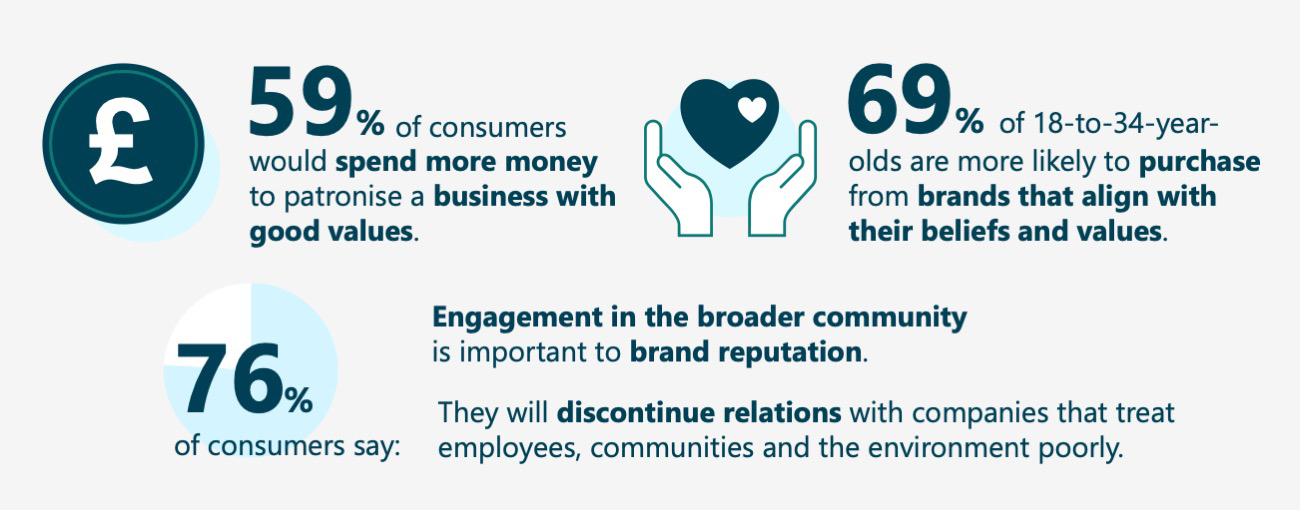The impact of CSR on brand reputation and consumer loyalty

The cultural transformation of the past few decades reshuffled expectations of what companies should be: profitable, yes, but that’s just the beginning. Individuals and businesses increasingly prefer to purchase goods and services from brands that have a bigger purpose, that contribute to a more sustainable planet and a fairer society.
Beyond reaping the rewards of economic growth that come with a thriving society, companies that invest in supporting their community enjoy more immediate brand benefits that increase their value. According to consumer surveys:

Scientific research corroborates the role of CSR in brand-customer relationships, with authors stating:

These findings translate into very clear business benefits for companies that are authentically engaged in social and environmental responsibility:
- Increased customer loyalty leads to increased Customer Lifetime Value.
- Stronger relationships with clients and the community increase an organisation’s perspective of continued relevance and growth.
In summary, companies that do good also end up doing well.
The fine print
Here we must state the obvious: the brand benefits of purpose, environmental responsibility, and corporate social impact are tightly linked to how embedded these are in business strategy. CSR and ESG will not carry a company’s reputation all by themselves, especially if they’re seen as an add-on. Purpose needs to be the driving force behind the executive leadership’s vision to effectively affect business operations and development.
A deep-seated purpose will manifest itself as authentic because it is aligned with business practices. In this context, CSR and ESG programmes are an additional way for companies to benefit the community, in line with a triple bottom-line approach to business, and top executives are accountable for their results.
This authenticity, coherence with business practice and accountability are shaping up to be the gold standard for business purpose in the 21st century; anything less, and companies might be suspected of purpose-washing.
Learn how to demonstrate authentic business purpose
Read our Guide to Meaningful Social Impact
Infographic 1 sources:
- EVERFI from Blackbaud consumer survey.
- PwC. How much does the public care about ESG?
- Eldeman. (2018). Earned Brand 2018.
Infographic 2 sources:
- Mahmood, A., and Bashir, J. (2020). How does corporate social responsibility transform brand reputation into brand equity?
- Servera-Francés, D., and Piqueras-Tomás, L. (2019). The effects of corporate social responsibility on consumer loyalty through consumer perceived value.
- Islam et al. (2021). The impact of corporate social responsibility on customer loyalty: The mediating role of corporate reputation, customer satisfaction, and trust.
Stay Informed
Best practices, the latest research, and insights from our expert network of partners, delivered right to your inbox.
Success!Thank you for signing up. We'll be in touch with more relevant content.







